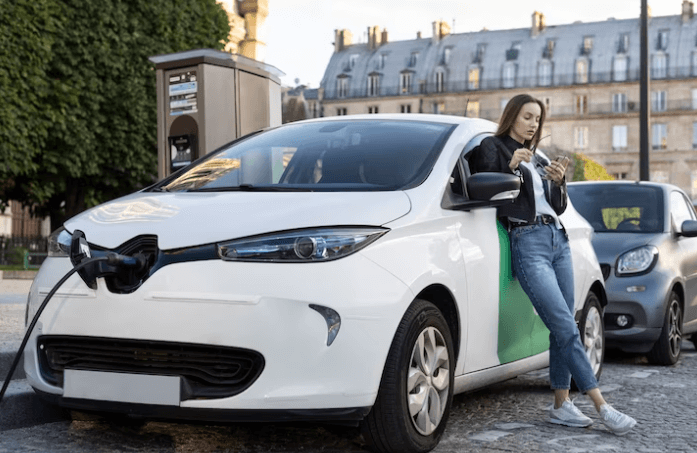The Truth About Electric Cars: Debunking Common Myths and Misconceptions

Electric cars are becoming an increasingly popular mode of transportation as more and more people look for ways to reduce their carbon footprint and save money on fuel costs. However, despite their growing popularity, there are still many myths and misconceptions surrounding electric cars.
From concerns about range and power to questions about battery safety and reliability, these myths can often discourage people from considering an electric car a viable option. In this article, we’ll take a closer look at the truth about electric cars, debunking common myths and misconceptions to help you decide whether an electric car is right for you.
Let’s dive in!
Unveiling the Reality Behind Common EV Misconceptions
As the world shifts towards cleaner energy and sustainable transportation, a growing number of EV (electric vehicle) service companies like Pumpt are working tirelessly to promote the benefits of EVs and make the transition to electric mobility accessible and affordable for everyone.
But, many misconceptions and doubts about EVs can hinder their widespread adoption and slow down the process of reducing carbon emissions. Here are some common myths about electric cars:
1. Electric cars have limited range and are impractical for long trips
While it’s true that early models of electric cars had a limited range, typically around 100 miles or less, recent advancements in battery technology and EV design have significantly increased their driving range.
Today, many popular electric car models offer a range of over 200 miles on a single charge, with some models boasting ranges of 300 miles or more. For example, the Tesla Model S Long Range can travel up to 405 miles on a single charge, while the Chevrolet Bolt EV can travel up to 259 miles on a single charge.
2. EVs are not as fast and powerful as their gasoline rivals
Electric cars can deliver instant torque and acceleration that surpasses most gasoline-powered cars. This means they can go from 0 to 60 mph faster than many gasoline-powered cars. For example, the Tesla Model S Performance can go from 0 to 60 mph in just 1.98 seconds, making it one of the fastest cars in the world.
Additionally, electric cars often have a more even weight distribution due to the placement of the battery pack, which can improve handling and traction on the road. Combined with their instant torque, this makes them highly responsive and agile, even at high speeds.
3. Electric cars are more expensive than gasoline cars
The upfront cost of an electric car can be higher than a comparable gasoline car, largely due to the cost of the battery and electric motor technology. However, in the long run, EVs can be more affordable due to their lower maintenance and fuel costs.
Electric cars don’t have as many moving pieces as traditional ones, which means less wear and tear and fewer costly repairs. This also means EVs don’t require oil changes or other routine maintenance associated with gasoline cars. Also, they have regenerative braking systems that help extend the life of brake pads and reduce maintenance costs.
Regarding fuel costs, the cost of electricity to charge an EV is typically lower than the cost of gasoline. Electric cars are generally more efficient and can travel farther on a single charge, translating into significant savings over the vehicle’s life. Finally, many countries offer tax incentives to encourage the adoption of electric cars, making EV ownership more affordable than ever.
4. Electric cars take too long to charge.
Charging times vary depending on the charging station and the car’s battery capacity. Many EVs can be charged up to 80% in as little as 30 minutes at a fast charging station. And with the increasing number of charging stations, finding a place to charge up is becoming easier.
5. Electric cars are not environmentally friendly because they are powered by electricity from fossil fuels
While it’s true that electricity generation is a significant source of greenhouse gas emissions, EVs are still more environmentally friendly than gasoline cars. EVs emit no tailpipe emissions, and the emissions from electricity generation are lower than gasoline combustion emissions.
Additionally, as renewable energy sources such as solar and wind become more widespread, the environmental benefits of EVs will increase even more.
6. EVs are ineffective due to a lack of public charging infrastructure
While it’s true that having a convenient and accessible charging station network is important for electric car owners, many of them rely primarily on charging their cars at home. With the increasing availability of affordable and efficient home charging solutions, owning an EV is becoming more practical and accessible for a broader range of consumers.
Additionally, public charging infrastructure is rapidly expanding, with many governments and private companies investing in developing charging networks to support the growing number of electric cars on the road.
7. EV batteries aren’t long-lasting
EV batteries are designed to last a long time and can typically last for hundreds of thousands of miles before needing to be replaced. Many automakers also offer warranties on their EV batteries that range from 8 to 10 years or more.
In addition, the lifespan of an EV battery can be extended with proper care and maintenance. This includes avoiding extreme temperatures, charging the battery regularly, and using appropriate methods for the battery type.
8. Electric car batteries aren’t recyclable
Many people have a valid concern that batteries for electric cars are not recyclable, leading to a significant environmental impact from discarded batteries. However, EV batteries are highly recyclable, with most of their materials able to be reused or repurposed.
The main components of an EV battery include lithium, cobalt, nickel, and other metals, as well as plastics and other materials. They can all be recycled or repurposed in various ways.
It is true, however, that the recycling process can be resource-intensive and costly. Recycling facilities can only handle one type of battery at a time, making it challenging to recycle various batteries. As a result, some experts suggest repurposing used EV batteries might be a more cost-effective and practical solution.
Automakers are exploring innovative ways to repurpose EV batteries, including using them as energy storage for homes and buildings, creating backup power supplies for data centers, and even repurposing them for use in electric boats and airplanes. These creative solutions help reduce waste and environmental impact and provide a second life for used EV batteries.
9. There is no variety in EV models
In recent years, manufacturers worldwide have been investing heavily in the development and production of EVs. As a result, dozens of models are now available across a range of styles and price points. From small hatchbacks to SUVs and even luxury sedans, there is an electric car model for nearly every need and budget.
The Future of EVs: Overcoming Obstacles and Gearing Up For a Sustainable Future
As you can see, many common misconceptions about electric cars persist, but examining and debunking them can help us better understand their numerous benefits, including environmental sustainability, cost-effectiveness, and overall performance.
While there are still challenges to overcome, the potential for EVs to revolutionize transportation and reduce carbon emissions is significant. By embracing this technology and promoting its growth, we can help create a cleaner, more sustainable future for future generations.
Additional:


























